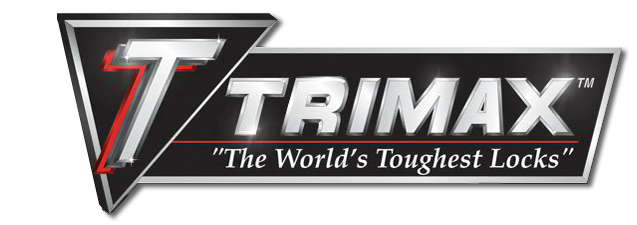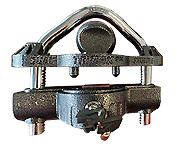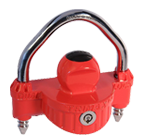19 Jul What are the Different Hitch Class Receivers?
Class I
- Class I hitches are weight carrying (WC) hitches rated up to 2000 lbs. gross trailer weight (GTW) with a maximum trailer tongue weight (TW) of 200 lbs.
- A Class I hitch usually has a 1-1/4″ square receiver opening.
- A higher class drawbar does not increase the towing capacity of the hitch.
- Class I hitches usually attach to the bumper, truck pan or vehicle frame.
Class II
- Class II hitches are weight carrying (WC) hitches rated up to 3500 lbs. gross trailer weight (GTW) with a maximum trailer tongue weight (TW) of 300 lbs.
- A Class II hitch usually has a 1-1/4″ square receiver opening.
- A higher class drawbar does not increase the towing capacity of the hitch.
- Class II hitches usually attach to the bumper or vehicle frame.
Class III
- Class III hitches are weight carrying (WC) and also are weight distributing (WD) depending on the vehicle and hitch specifications.
- Not all Class III hitches are rated to be both. See the specific hitch for that information.
- Class III hitches used as weight carrying are rated up to 6000 lbs. gross trailer weight (GTW) with a maximum trailer tongue weight (TW) of 600 lbs.
- Class III hitches used for weight distributing are rated up to 10,000 lbs. gross trailer weight (GTW) with a maximum trailer tongue weight (TW) of 1000 lbs.
- A Class III hitch usually has a 2″ square receiver opening.
- A higher class drawbar does not increase the towing capacity of the hitch. To use this class of hitch for weight distribution requires a weight distribution system.
- Class III hitches attach to the vehicle frame only.
Class IV
- Class IV hitches are weight carrying (WC) and weight distributing (WD) hitches depending on the vehicle and hitch specifications.
- Not all Class IV hitches are rated to be both. See the specific hitch for that information.
- Class IV hitches used as weight carrying are rated up to 10,000 lbs. gross trailer weight (GTW) with a maximum trailer tongue weight (TW) of 1000 lbs.
- Class IV hitches used for weight distributing are rated up to 14,000 lbs. gross trailer weight (GTW) with a maximum trailer tongue weight (TW) of 1400 lbs.
- A Class IV hitch usually has a 2″ square receiver opening.
- A higher class drawbar does not increase the towing capacity of the hitch. To use this class of hitch for weight distribution requires a weight distribution system.
- Class IV hitches attach to the vehicle frame only.
Class V
- Class V hitches are weight carrying (WC) and weight distributing (WD) hitches depending on the vehicle and hitch specifications.
- Class V hitches used as weight carrying are rated up to 12,000 lbs. gross trailer weight (GTW) with a maximum trailer tongue weight (TW) of 1200 lbs.
- Class V hitches used for weight distributing are rated up to 17,000 lbs. gross trailer weight (GTW) with a maximum trailer tongue weight (TW) of 1700 lbs.
- Your ball mount and hitch ball need to both be rated for Class V to safely tow these weight loads. To use this class of hitch for weight distribution requires a weight distribution system.
- A Class V hitch has a 2-1/2″ square receiver opening.
- Class V hitches attach to the vehicle frame only.
Other Resouces for Hitch Class Receivers
Hitch Class Receiver Sizes FAQ – etrailer.com
Video: https://www.youtube.com/watch?v=JkKFTI97j-0
How To Select The Right Hitch Class
https://www.autoanything.com/towing/how-to-select-the-right-hitch-class.aspx#.W1DKs5ksFfY.facebook




No Comments